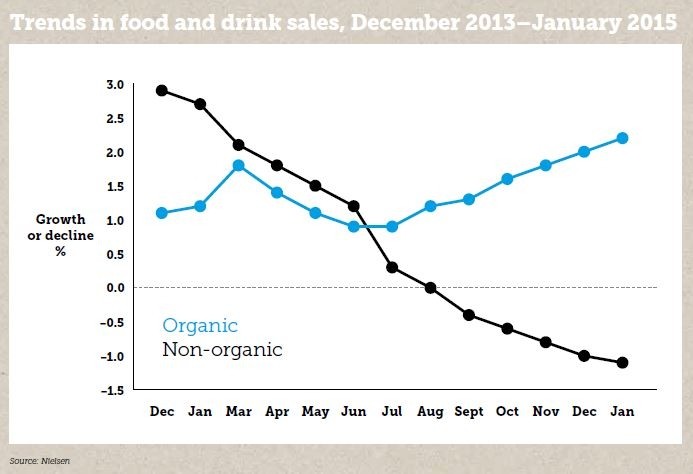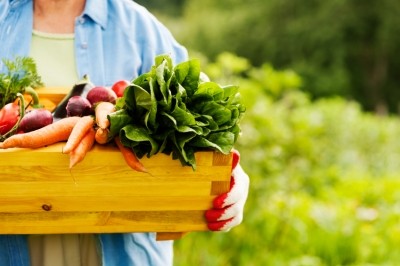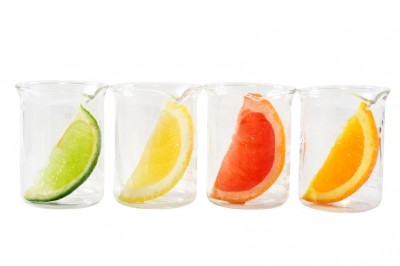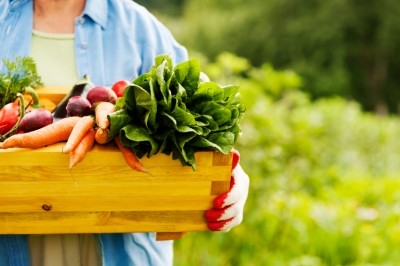UK organic market up 4% last year

Sales of organic products last year were back to 2009 levels, reaching £1.86bn (€2.53bn), the campaigning organisation said in its latest annual Organic Market Report. It called the growth “encouraging but not earth-shattering yet”, building on 2.8% growth in 2013.
Last year, overall food and drink sales shrank by 1.1%, as food prices fell 1.9%. The Soil Association predicts that UK organic growth will continue through 2015, to break the £2bn (€2.72bn) barrier in 2016.
“There is good reason to believe that current levels of organic market growth can be sustained in the long term, thanks to a compelling combination of committed consumers, new CAP support for producers, new research and product development, and favourable economic conditions,” the report said.
While the UK organic sector took a hit as the recession took hold, shrinking every year from 2008 to 2012, this has not been the case across Europe, where organic sales increased by 25% in the same period.
The Soil Association’s trade development manager Finn Cottle told FoodNavigator: “There’s still a myth in the UK that organic is only for the most affluent. A lot of our work at the Soil Association has been to dispel that myth. In a lot of other countries, there just isn’t that obstacle.”
Among UK consumers, the most popular organic categories were dairy products, which accounted for 27.9% of organic sales in 2014, followed by fruit and vegetables (23%) and baby food and drink (10.4%).
The report said marketing investment and innovation were also driving growth in the packaged food sector, with more organic versions of established brands and online organic sales outpacing online sales of non-organic products.
Cottle added that the sector increasingly was attracting younger consumers, aged under 35. They tended to favour online shopping, helping to boost online sales – but internet shopping often also provided a wider range of organic product choice, she said.
“Traditionally, five or six years ago, there was a skew towards an older customer who had a bit more money and more knowledge about certain foods,” she said. “…It’s quite an urban market and we know that the under-35 group is becoming more and more important.”
Soil Association chief executive Helen Browning said in a statement: “Three years ago, commentators were writing off the organic market in the UK.
“Now, with a third year of steady growth, and against a falling overall food market, it’s clear that reports of organic food’s demise were premature to say the least. This reinvigoration may be partly related to an improving economy, but it’s also testament to the fact that retailers and manufacturers who continued to invest in organic lines have continued to thrive. Now, even the discounters are beginning to stock organic ranges.”
According to the report, Germany has the largest organic market in Europe, worth €7.6bn, while the highest average per capita consumption of organic food by value is Switzerland, at €189 a year, followed by Denmark, at €159. Denmark also has the highest organic market share worldwide, with organics accounting for 8% of all food and drink purchases, followed by Switzerland, where organics take a 6.9% market share.



























